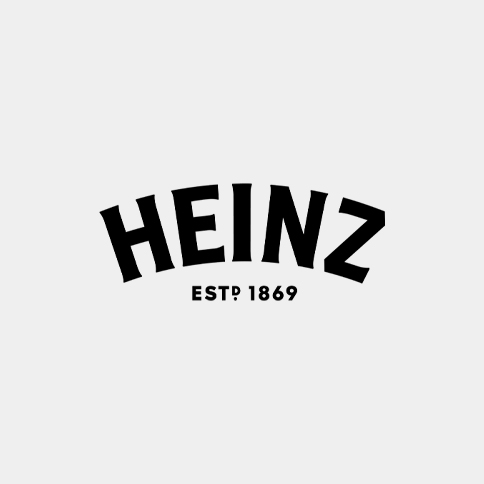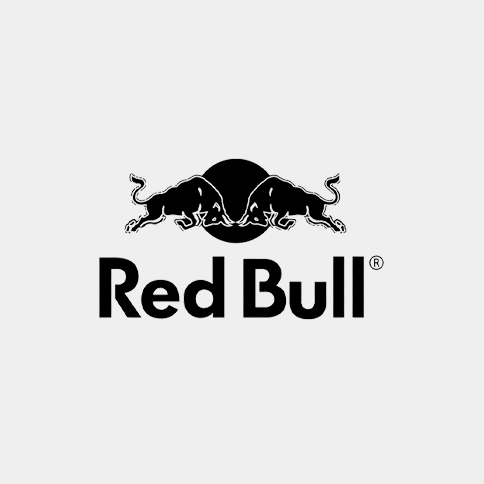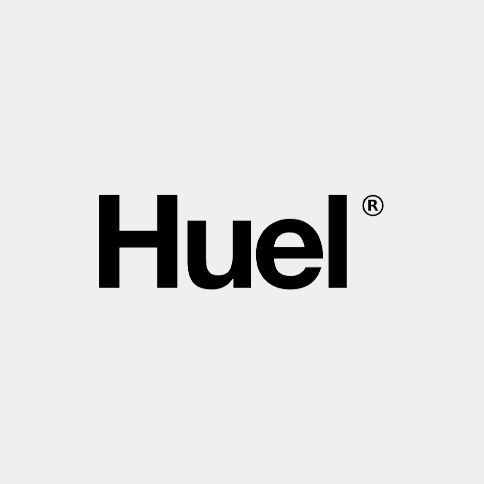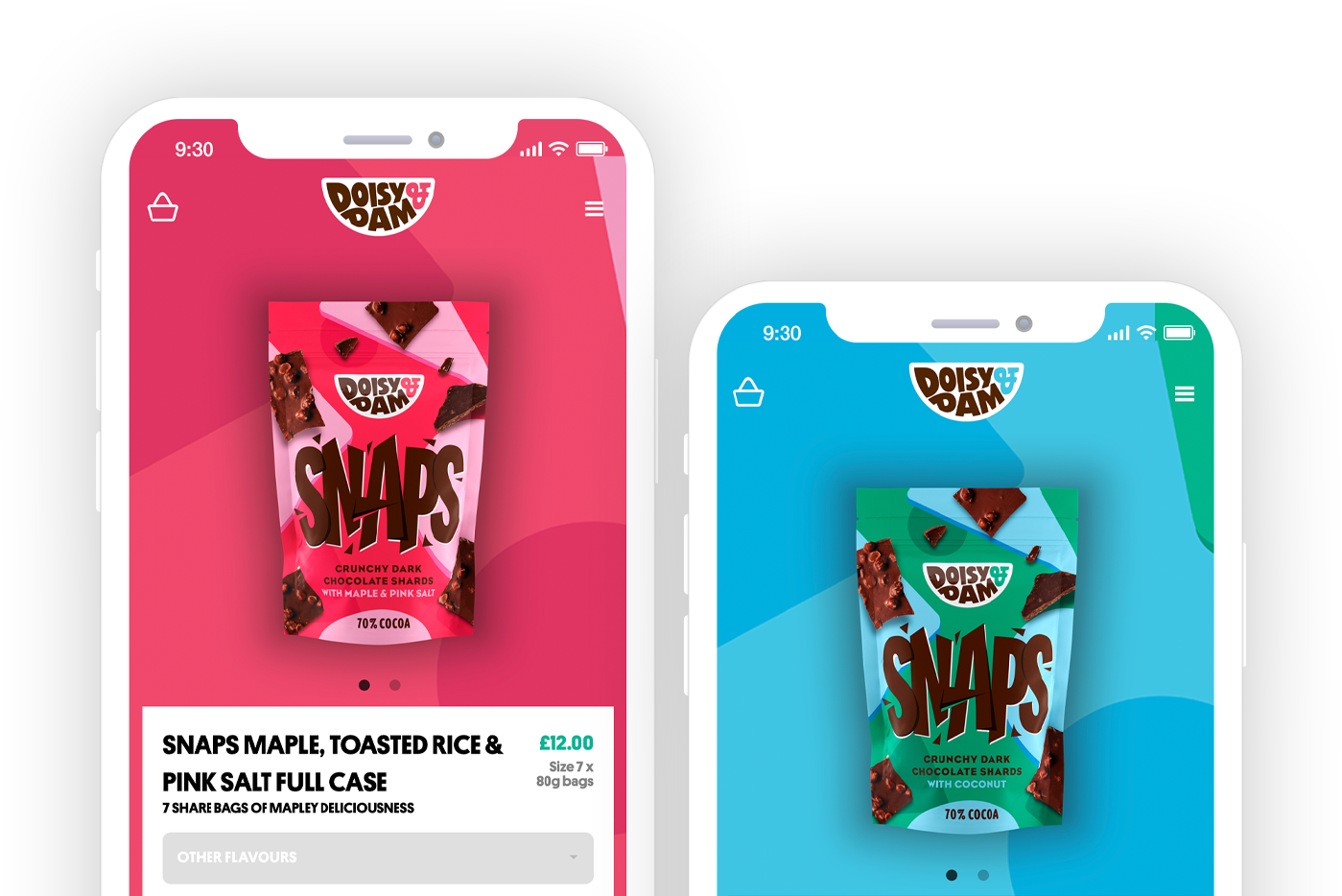What is Headless Architecture?
Before we dive into examples of brands using headless architecture on
Shopfiy, we must first learn exactly what headless architecture is. The term "headless commerce" describes the design of an eCommerce system in which the frontend and backend of a website are "decoupled." Simply put, headless commerce enables you to isolate the online storefront from any backend business operations. Store owners will have more control over the frontend or "presentation layer" customization because the two separated sides will operate independently and interact through APIs.
Headless Architecture on Shopify
Shopify Plus constantly seeks for the most cutting-edge technologies with the goal of providing businesses with a configurable enterprise solution, and headless architecture is one of them. When you use Shopify headlessly, all of the backend features it offers are still available, and you are free to use any number of frontends to run the customer-facing portion of your Shopify store. The headless approach frees you from some restrictions that come with the standard Shopify, such as the rigid URL structure, and expands your options for customization and personalization significantly.
Shopify uses
Hydrogen and Oxygen, a React-based framework to aid Shopify merchants and developers in creating custom storefronts that provide the best individualized shopping experiences. This is because Shopify is aware of how headless commerce can have a significant impact on the way ecommerce merchants conduct business. When merchants now have greater control over the best front-end performance while preserving Shopify-optimized eCommerce components on the backend, Shopify Headless and Hydrogen are on-track to be the game-changer in the ecommerce sector. So, we know what headless architecture is and how it’s powered on Shopify. But what are some examples of brands using headless architecture on Shopify? Let’s dive in.
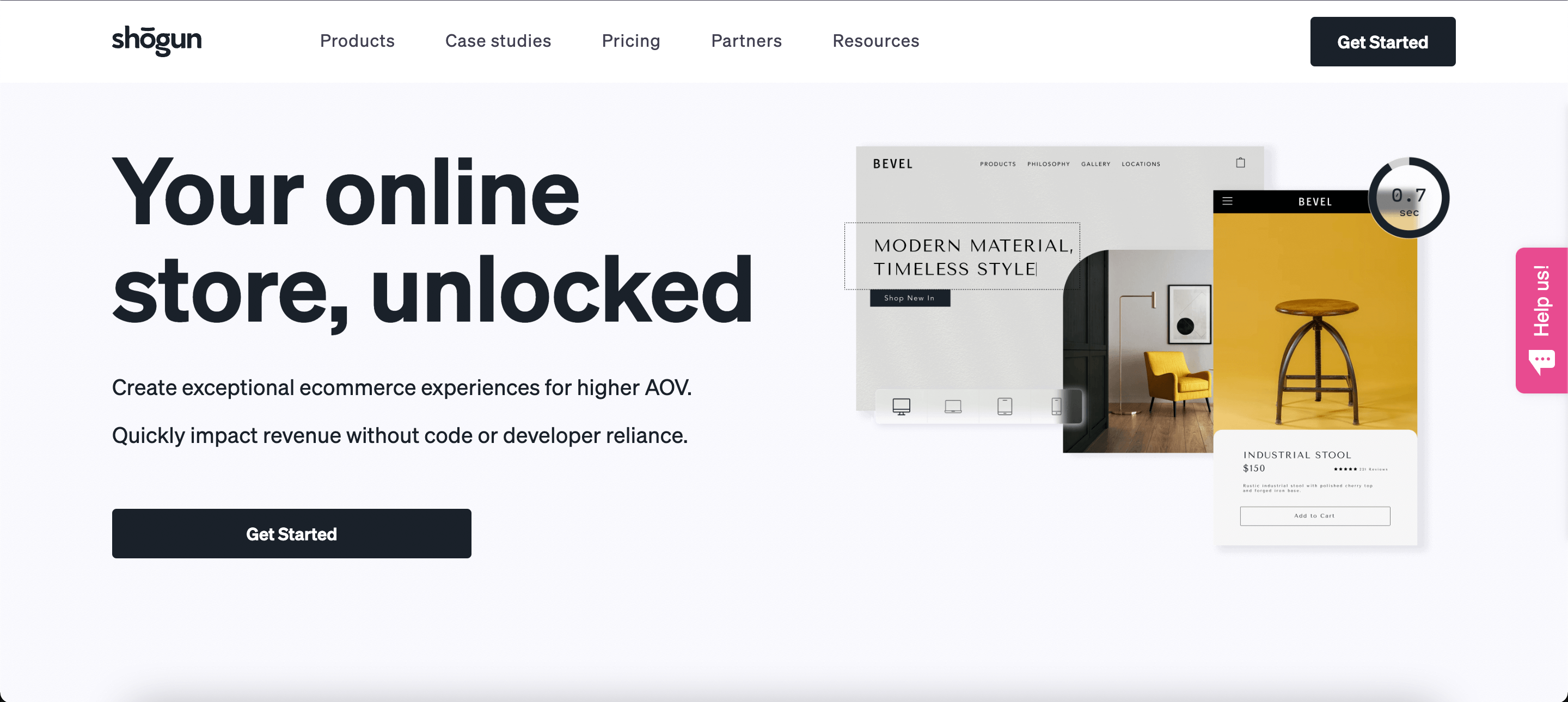
1. Shogun
First in our examples of brands using headless architecture on Shopify is Shogun. Shogun's software is well known for assisting merchants in building beautiful, quick-loading custom storefronts. We’ve partnered with leading content management systems or cms such as Shogun Frontend and Contentful to offer unrivaled content management applications without sacrificing performance. Separating each requirement for websites offers the merchants true flexibility with selling products and managing a storefront api.

2. Victoria Beckham Beauty
Next headless commerce brand on our list is Victoria Beckham Beauty. A high-end cosmetics and beauty brand, Victoria Beckham Beauty strives to provide a specialized and exclusive online presence to match its notoriety. In order to have more flexibility with visual design, user experiences, and product categorization, they turned to Shopify's headless approach. While Contentful creates and designs the frontend, Victoria Beckham Beauty leverages Shopify storefront APIs to handle the inventory and product information. By using a headless approach, the site experienced superbly quick mobile app-like performance with no page reloads, and increased speed at the top of the sales funnel has positively impacted their conversion rate.
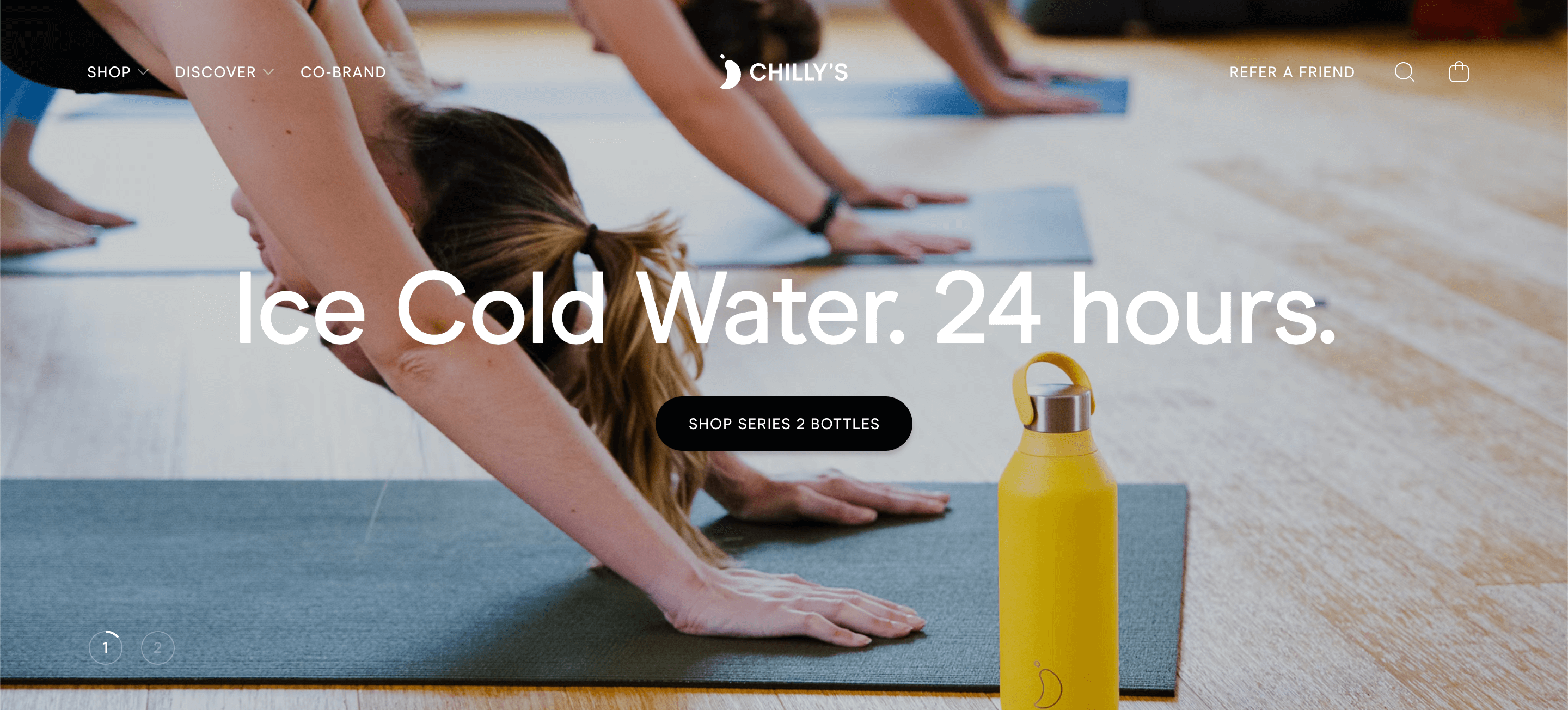
3. Chilly's
Chilly's made an early transition to a headless architecture, guaranteeing that their website is just as ground-breaking as their products. Going headless was a wise option for Chilly's, as seen by a custom homepage design that is a far cry from your typical template and a product personalization page that mixes design and performance.

4. Staples
It's understandable that the UK's largest retailer of office supplies, Staples, went headless given its enormous product catalogue, which must be updated regularly, swiftly, and conveniently. Additionally, a headless design enables Staples to optimize each system on their website for its own role by enabling customers to create or log in to accounts, order by item number, or reorder previously purchased items.
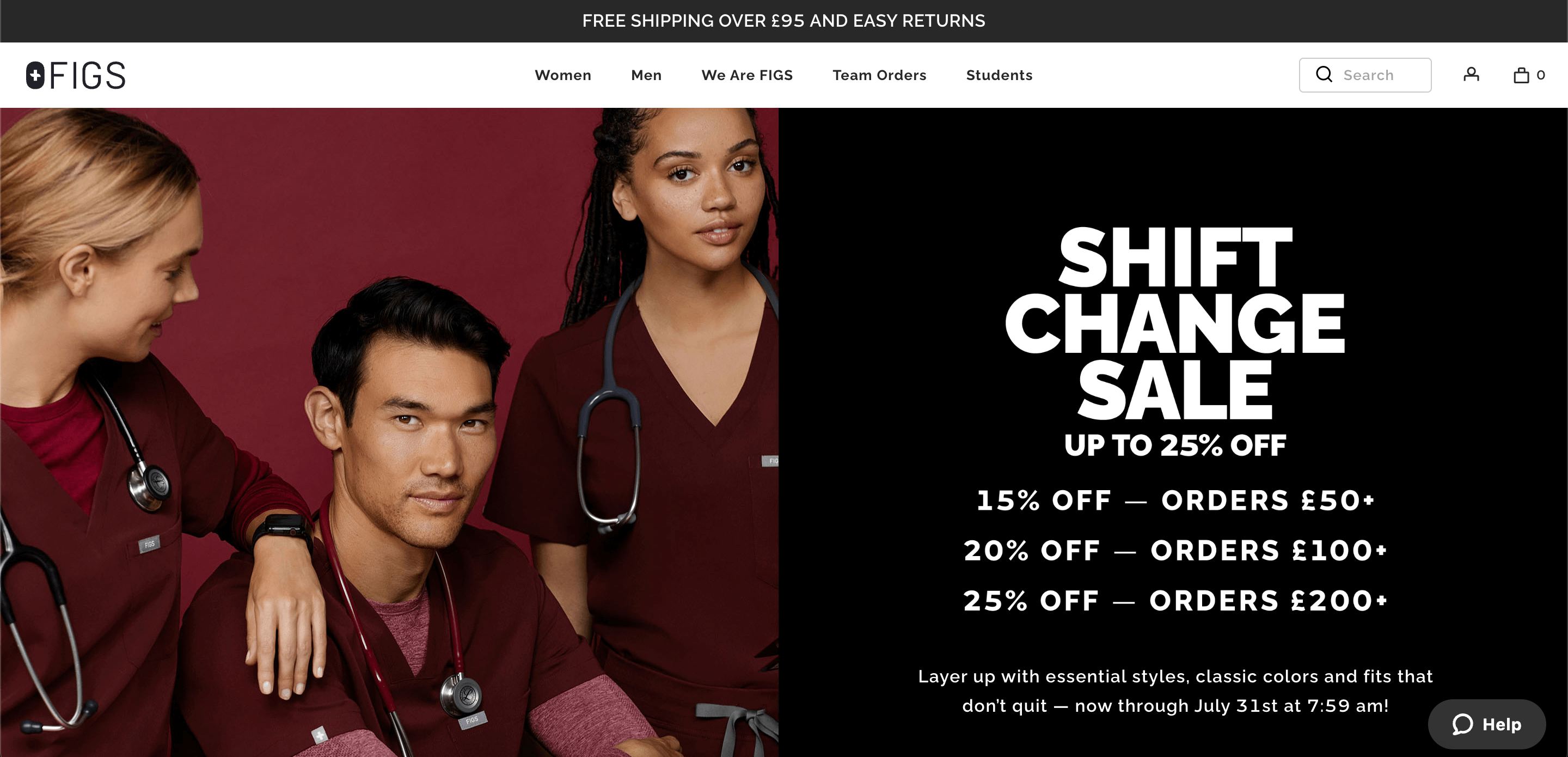
5. FIGS
FIGS, a company that sells healthcare apparel and lifestyle products on Shopify, is another company using a headless approach. FIGS uses Shopify Plus to manage the backend features, but since their online presence requires greater customization freedom, they've resorted to Unbounce and Next.js to handle frontend management. This dramatically improves the customer's online purchasing experience at FIGS by enabling them to link each custom-built landing page with a Shopify product page. Additionally, all information will be retrieved from Shopify Plus, where FIGS can easily manage orders and adjust inventory in a matter of minutes.

6. Bols
The oldest and most well-known liquor company in Amsterdam, Bols, also found possibilities in Shopify headless. Bols made the decision to grow their company and go global with direct-to-customer sales after developing their new at-home product line. Thanks to the headless Shopify Plus solution, their page loading time increased by 50%, and they gained complete control over the custom storefront to provide clients with a content-rich experience.
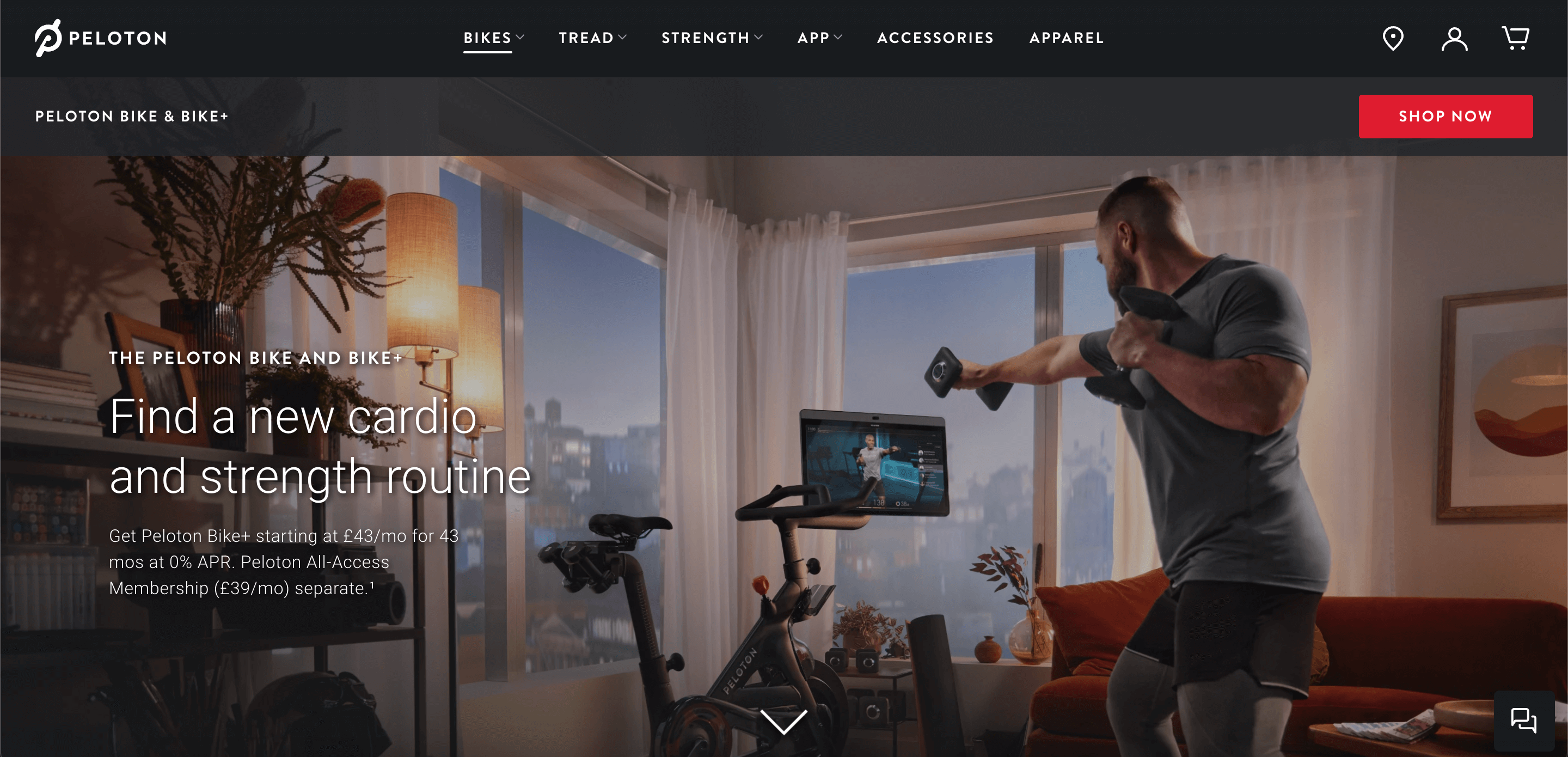
7. Peloton
By fusing technology, design, and community to make workouts accessible to everyone, Peloton has transformed fitness. It makes perfect sense that Peloton chose to go headless since it makes it easy to maintain everything in sync. Digital touchpoints like the Peloton app and the training technology itself are at the heart of their service. A headless design also makes Peloton's continuing upgrades faster and simpler, which is beneficial given how frequently their classes and software features are updated.
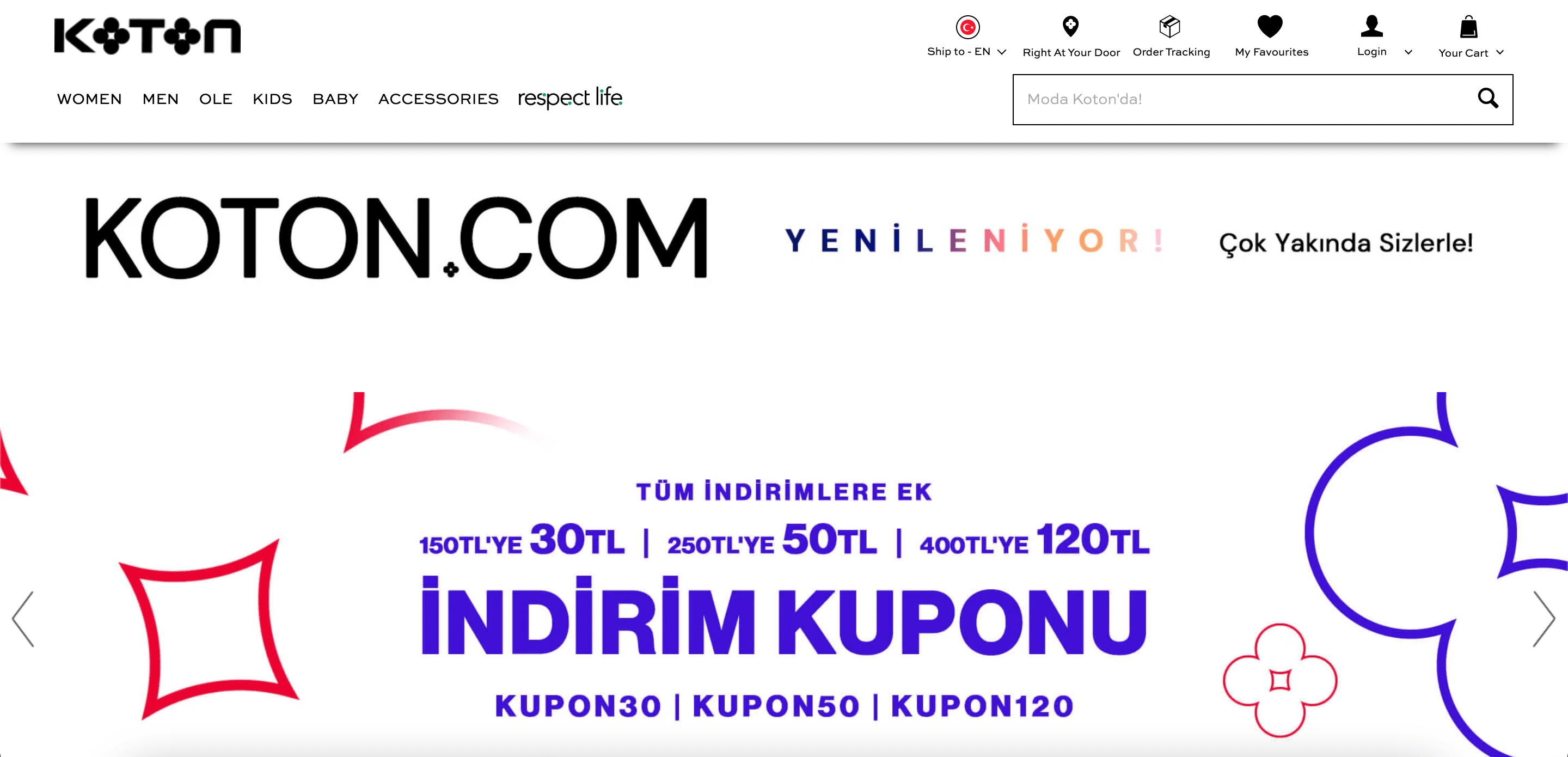
8. Kotn
A great example of a case study using the Shopify headless API is the Canadian clothing company KOTN, which combined two stores into one. Although KOTN's eCommerce site wasn't initially headless, Shopify Plus now powers it entirely headlessly. They now have complete control over how to run their business and give clients a customized out-of-the-box experience thanks to headless architecture. Their storefront can now be updated in a matter of seconds, and the greatest part is that their website loads remarkably quickly—even in the midst of a busy season.

9. Verishop
Verishop sells just about anything you may want, from clothing and accessories to cosmetics, furniture, and home goods. Additionally, as a multi-brand retailer, Verishop's headless website supports a customized URL structure, enabling them to provide customized experiences at brand-specific URLs, which is advantageous for SEO. Their website's performance is very outstanding, especially when you consider how many products have to load for each category.
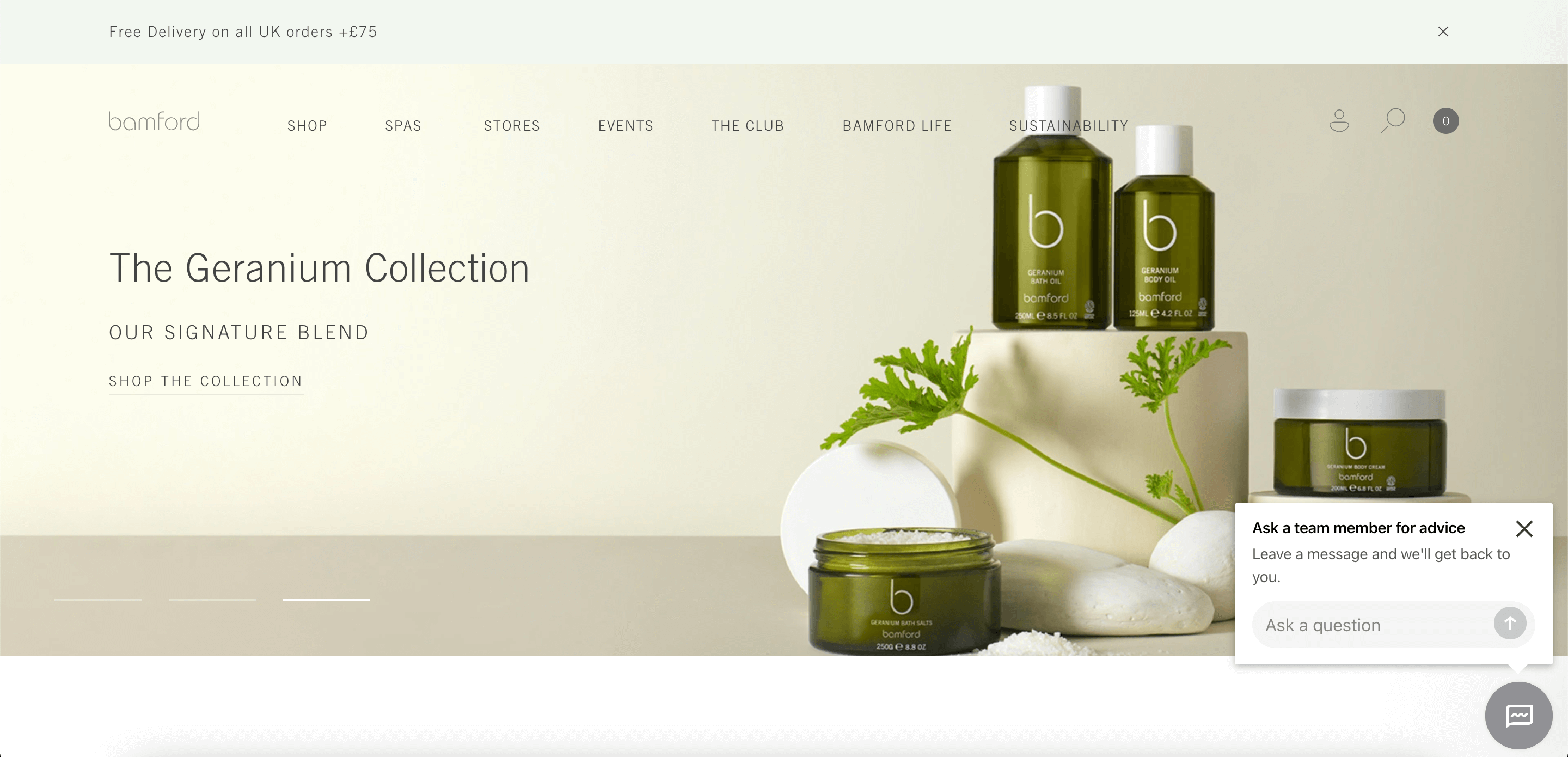
10. Bamford
The English company Bamford produces upscale organic body care products and loungewear. Bamford chose Shopify Headless as their go-to option when they needed to redesign their website so that it accurately reflected the customer experience of their shops and spas while still preserving the ease of communication and seamless purchase process. Bamford changed the platform for their eCommerce site away from WooCommerce, switching to Shopify Plus as the headless platform and Contentful as the CMS platform.
Thanks to the Shopify platform, this integration maintained a quick website load time, improved backend performance, and increased user security. Bamford continued to have unrestricted creative freedom for the front end, which they used to provide clients with a straightforward, aesthetically pleasing web presence.
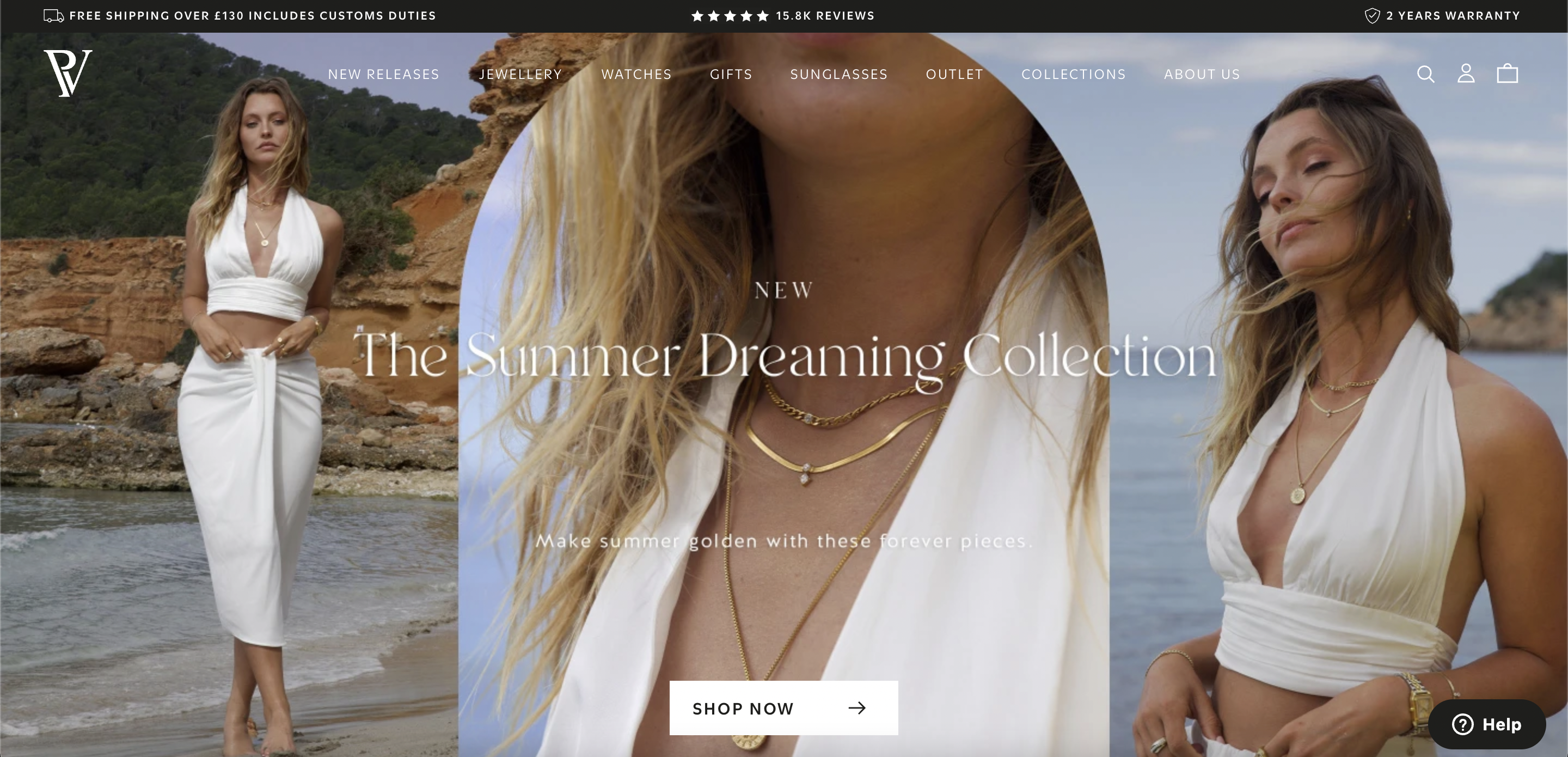
11. Paul Valentine
German-based Paul Valentine is a premium jewellery and accessory company. They realized they had to expand the business internationally in order to realize their ultimate aim of making Paul Valentine a genuinely global brand, even though doing so may be difficult when attempting to navigate several countries at once. Paul Valentine used Shopify Plus to establish five international stores in Europe and North America. For the goal of complete localization, no two online stores are exactly alike.
Going headless provided them the ability to manage the infrastructure of various worldwide stores with ease and to provide a more individualized customer experience. Paul Valentine is currently offered in 131 countries through 20 worldwide web businesses that speak 8 languages, making the headless strategy highly worthwhile.
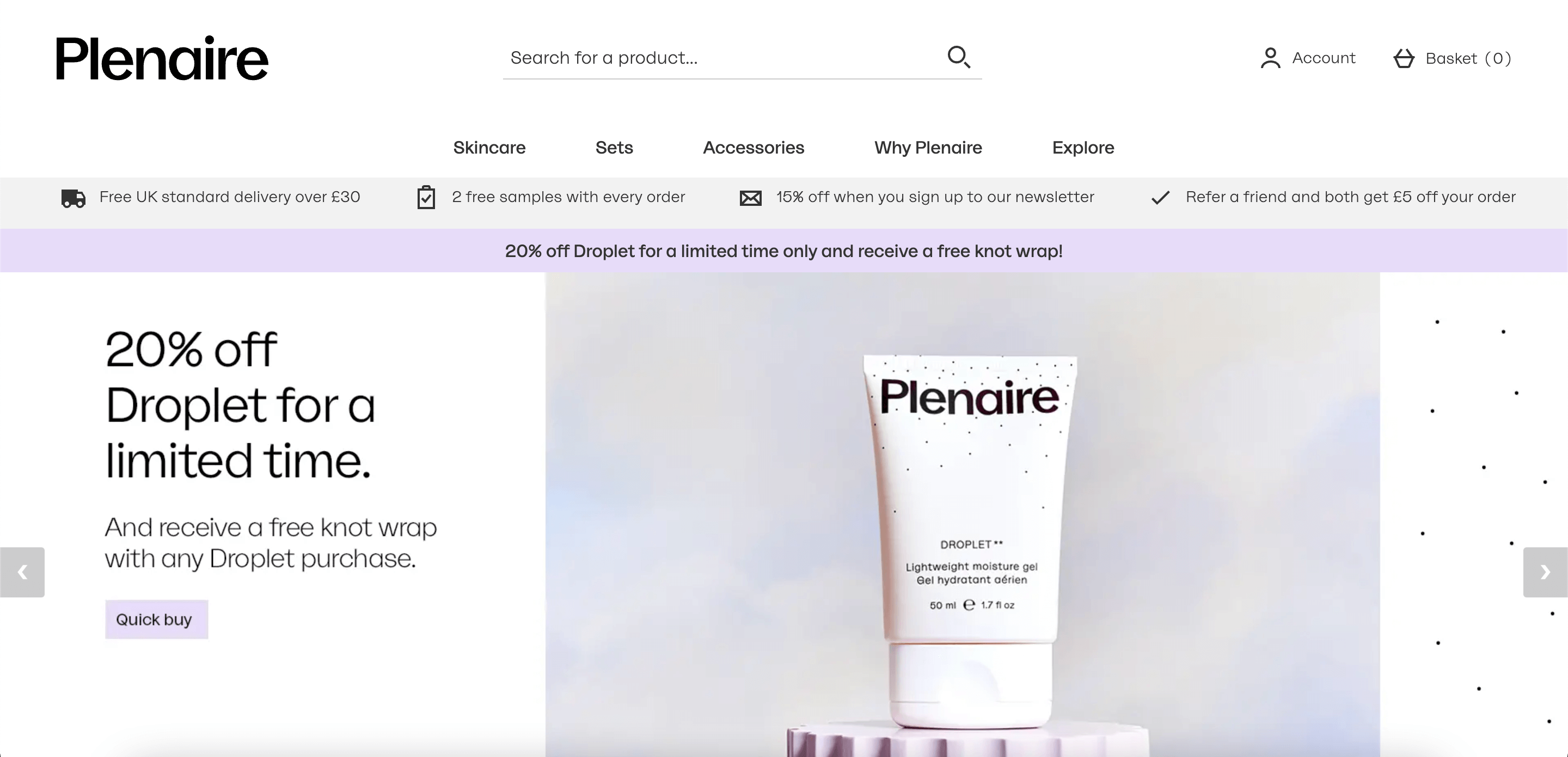
12. Plenaire
Plenaire has its e-commerce website and skincare products down to a precise science. This dynamic page responds to the user's scrolling down the page, giving it a light and airy appearance that is consistent with their logo.
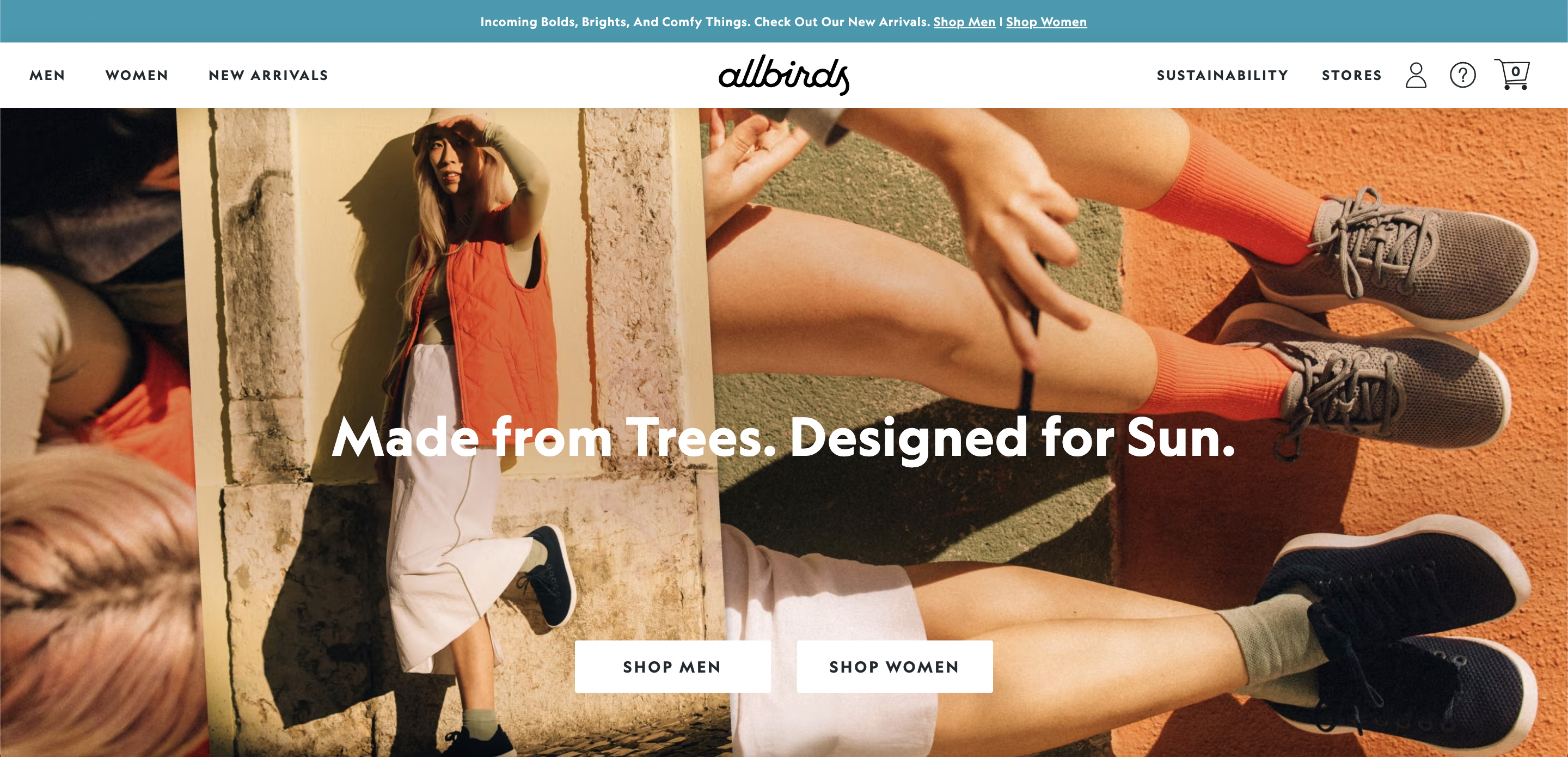
13. Allbirds
For a number of reasons, including the attractive fashionable design of the website, Allbirds, known for their eco-friendly sneakers and sustainable clothes, are global favorites. They were able to create a simple design that is quick, simple to use, and has individuality thanks to a headless build.
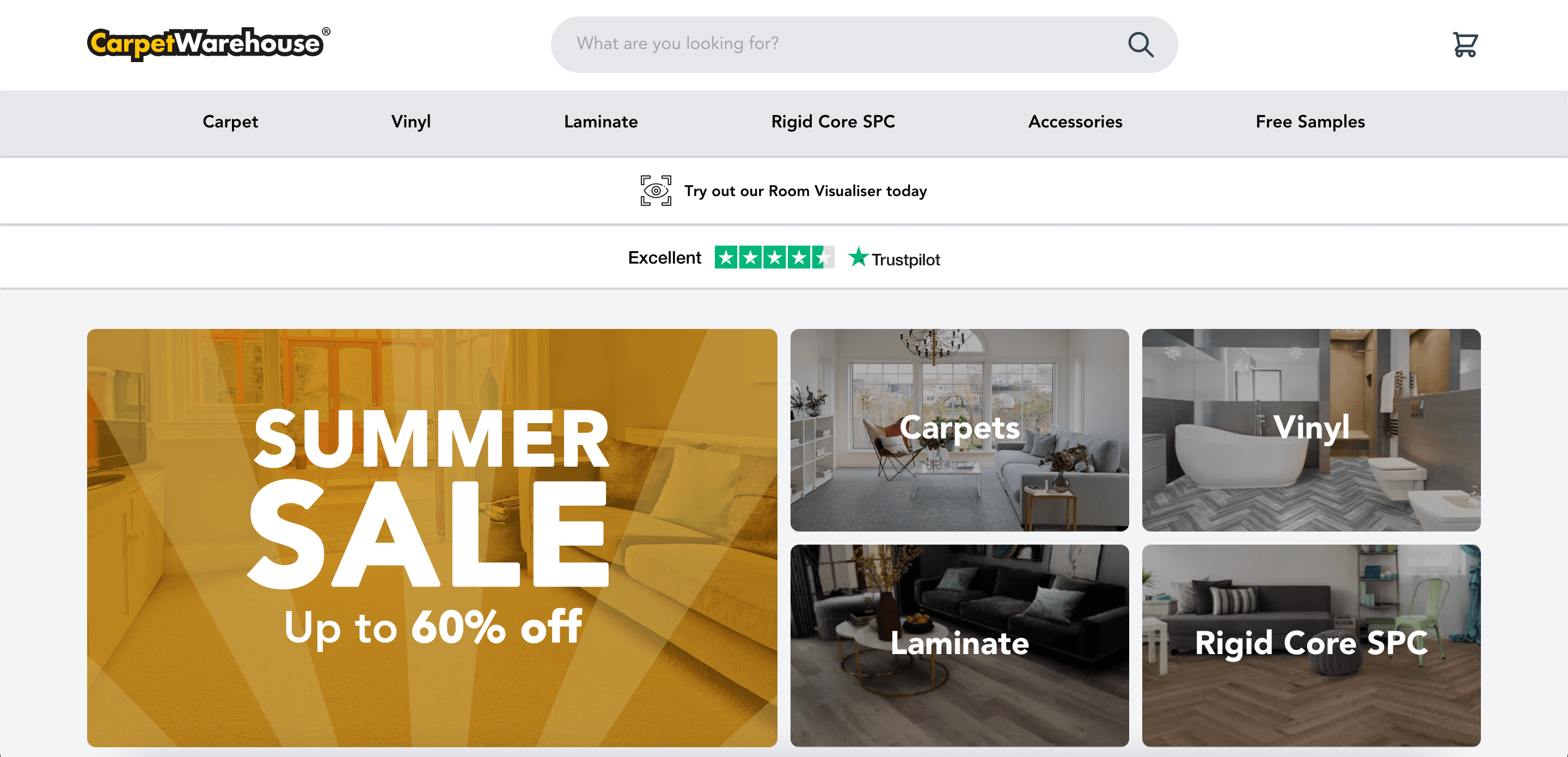
14. Carpet Warehouse
To finish off our examples of brands using headless architecture on Shopify, our membership client Carpet Warehouse having been using a headless build to power their online storefront. If you’re interested in
using headless commerce for your Shopify store, don’t hesitate to
get in touch. Headless architecture builds are fundamental to helping your store stay competitive and deliver a powerful user experience in an innovative and ever-changing ecommerce environment.
Summary
And there you have it! Some of the best examples of brands using headless architecture on Shopify today. We hope this article has given you some inspiration on how headless commerce technology is changing the game, and how you can implement headless architecture into your Shopify to deliver the most powerful ecommerce experience possible.
Need help with building a headless commerce Shopify or Shopify Plus store? Charle are a
Headless Shopify agency who are industry experts.
Contact us, we'll be happy to help.

















